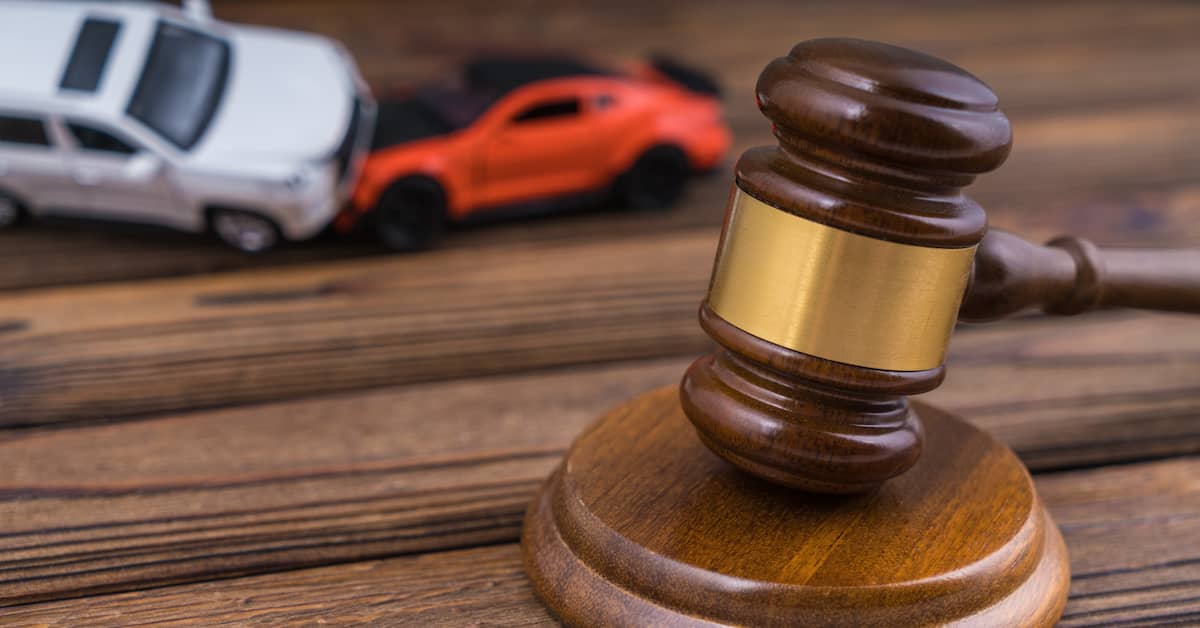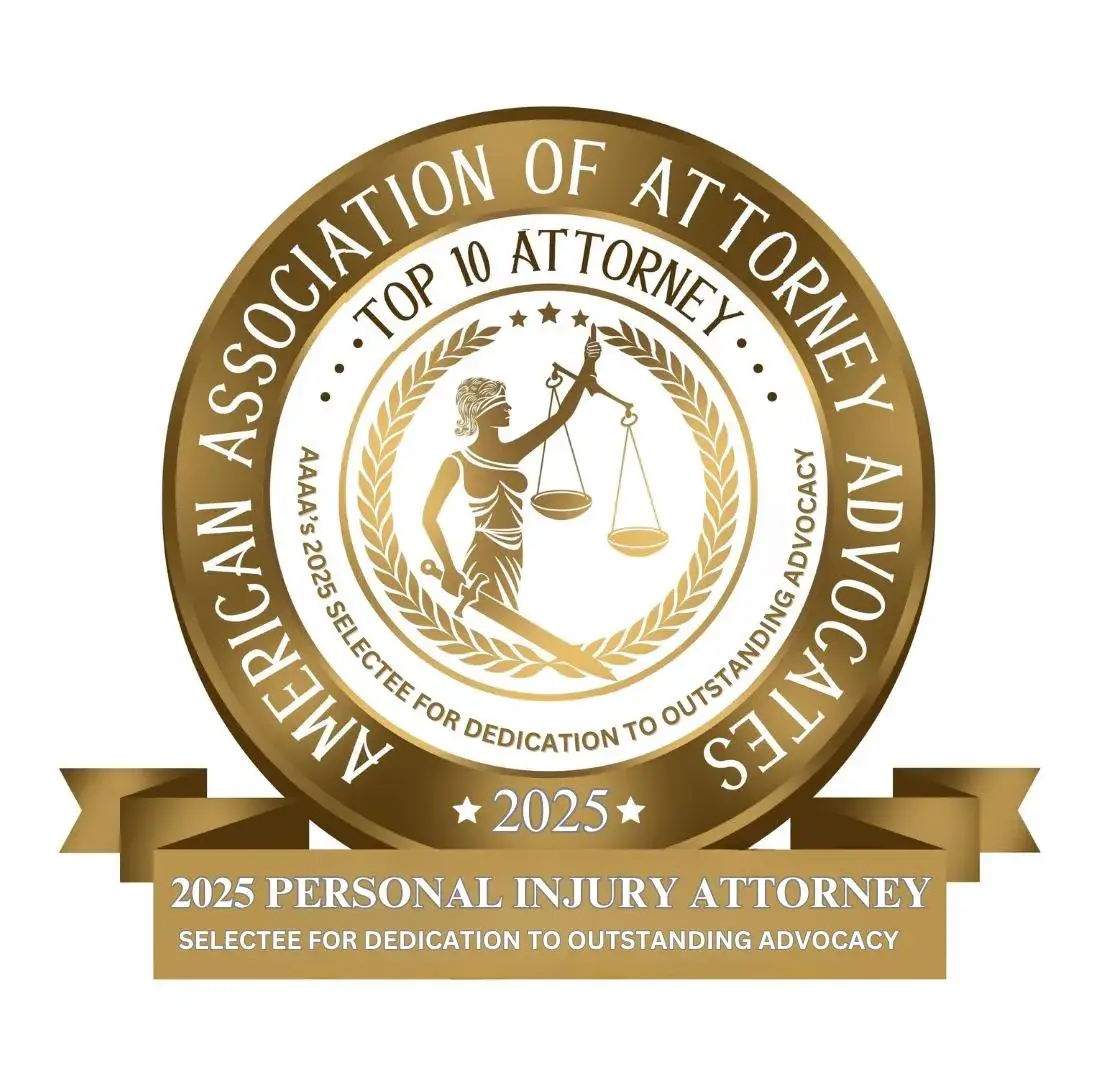
What Does No-Fault State Mean?
If you’ve been in a car accident, you’re likely feeling overwhelmed, scared, and unsure about what to do next. On top of coping with your injuries and damages, you may be hearing terms like “no-fault state” or “no-fault insurance” and wondering what they really mean. If you live in a no-fault state or were involved in a car accident in one, understanding how this system works is essential for getting the compensation and care you need.
Here’s a closer look at what no-fault insurance is, how it works, and what steps you can take after an accident.
What is a No-Fault State?
When you live in a no-fault state, the process for handling car accident claims is different than in states that use a fault-based system. The primary difference lies in how medical expenses, lost wages, and other damages are covered after an accident.
No-Fault Insurance Basics
In a no-fault state, your own auto insurance policy pays for certain damages—like medical bills and wage losses—after an accident, regardless of who was at fault. This is known as Personal Injury Protection (PIP) coverage. The goal of no-fault insurance is to streamline the claims process and reduce the number of lawsuits, allowing accident victims to quickly access the medical care and financial support they need.
Is New Jersey a No-Fault State?
Yes, New Jersey is a no-fault state. The no-fault system is designed to streamline the process of financial recovery after a car accident. Under this system, as outlined in the New Jersey Statutes § 39:6A-4, individuals involved in car accidents file claims with their own insurance carriers, regardless of who was at fault. This coverage, known as personal injury protection (PIP), helps cover medical expenses and, in some cases, lost wages and other damages up to the policy’s limit.
States with a No-Fault System
No-fault laws vary from state to state, and not all states follow this system. For example, New Jersey and New York, where many of our clients are located, operate under no-fault rules. This means that if you’re injured in a car accident in these states, you would file a claim with your own insurance provider under your PIP coverage, regardless of who caused the accident.
While no-fault insurance offers certain benefits in terms of faster claims processing, it also has limitations. We’ll explore both sides so you can understand what to expect.
How No-Fault Insurance Works
Under no-fault insurance, you don’t need to prove fault to access benefits for injuries and other covered damages. That can be a relief, especially after an accident, when tensions may run high, and the details of who is to blame can be unclear. However, it’s important to know what no-fault coverage includes, what it doesn’t, and how to protect yourself.
Why is New Jersey a No-Fault State?
New Jersey’s adoption of no-fault laws aims to simplify the process of dealing with car accidents. This system is designed to expedite compensation for injuries before establishing fault, reduce the burden on the courts, and streamline insurance claims.
By requiring each driver’s insurance to cover their own medical expenses, the no-fault approach helps ensure timely medical treatment and financial support, regardless of who caused the accident. It attempts to create an efficient, fair resolution of auto accident claims by providing a level of immediate protection to all involved parties.
Though no-fault laws may keep frivolous lawsuits from crowding court dockets, they can also make it difficult for legitimate claimants to see justice. Consulting an experienced New Jersey car accident lawyer is in your best interest should you believe your losses exceed the limits of your PIP insurance.
What Does PIP Insurance Cover?
Personal Injury Protection (PIP) coverage is the backbone of no-fault insurance. Here’s what it generally provides:
- Medical Expenses: PIP covers medical bills related to your injuries from the accident, such as hospital stays, surgeries, medications, and physical therapy.
- Lost Income: If your injury prevents you from working, PIP may reimburse a portion of your lost wages.
- Essential Services: If you’re unable to perform household tasks (like cleaning or cooking) due to your injuries, PIP may help cover the cost of hiring someone to handle these chores.
- Funeral Expenses: Some PIP policies include death benefits in the event of a fatal accident.
What Isn’t Covered?
No-fault insurance doesn’t cover every kind of damage. For example:
- Vehicle Damage: Repairs to your car aren’t included in PIP coverage. For that, you’ll need collision coverage—or you can make a claim against the at-fault driver in certain circumstances.
- Pain and Suffering: Emotional distress, loss of enjoyment of life, or other non-economic damages are generally not covered under no-fault rules.
If your expenses exceed your PIP coverage limit or your injuries meet specific legal thresholds, you may still have the option to file a lawsuit against the at-fault driver. This is often referred to as meeting the “serious injury threshold.”
Understanding the Threshold for Legal Action
One of the biggest questions accident victims have in a no-fault state is whether they can sue the at-fault driver. The ability to do so depends on the specific laws of your state and whether your injuries meet the “serious injury threshold.”
Each state that uses the no-fault system defines this threshold differently, but common examples include:
- Permanent or significant loss of a body part or function
- Substantial disfigurement
- Serious fractures
- Death
If you meet the threshold, you can file a lawsuit against the driver responsible for your accident. Seeking legal guidance early on can clarify your options and prevent missed opportunities to recover compensation.
Benefits and Challenges of No-Fault Systems
It’s important to weigh the advantages and disadvantages of no-fault insurance. Understanding both sides can help you manage your expectations as you move forward.
Benefits of No-Fault Insurance
- Faster Access to Funds: Without needing to prove fault, many accident victims can quickly receive payments for medical bills and lost wages, helping to ease the financial burden.
- Reduced Litigation: No-fault insurance limits the need for lawsuits, which can be time-consuming, costly, and emotionally draining.
Challenges of No-Fault Insurance
- Limited Compensation: The inability to recover damages for pain and suffering or other non-economic losses can be frustrating, especially when someone else was clearly at fault.
- Cost of Insurance: No-fault systems can sometimes lead to higher insurance premiums, as drivers are required to carry PIP coverage.
Knowing what to expect can help you stay prepared and informed as you deal with your claim.
When to Seek Legal Assistance
Even in a no-fault system, the process can become overwhelming, confusing, or contentious. Here are a few situations where seeking legal advice can make all the difference:
- Your Claim Is Denied: If you believe your insurance company wrongly denied your claim or isn’t covering all your expenses, a lawyer can help fight for what you’re owed.
- Serious Injuries: When your injuries meet the serious injury threshold, pursuing additional compensation through a lawsuit may be necessary.
- Unreasonable Delays: If your insurance provider is delaying payment, legal assistance can speed up the process and hold them accountable.
- Complex Cases: Disputes over coverage, multi-vehicle accidents, or accidents involving commercial vehicles can involve more intricate legal issues that require professional representation.
Having someone on your side who understands the system can alleviate stress during this difficult time.
How Long Do You Have to File a Lawsuit?
If you’ve been injured in a car accident, it’s crucial to be aware of the deadline for filing a lawsuit, known as the statute of limitations. This is the time limit set by law for pursuing legal action after an accident. Once the statute of limitations expires, you will likely lose your right to seek compensation, no matter how severe your injuries or losses.
The exact time limit varies depending on your state. For example, in New Jersey and New York, the statute of limitations for personal injury claims is generally two to three years from the date of the accident. However, if the claim involves a government entity, such as a public transportation vehicle, the deadline can be much shorter—sometimes as little as 90 days to file a notice of claim.
Acting promptly is essential. While it may feel overwhelming to deal with legal matters so soon after an accident, gathering evidence and building a strong case becomes harder with time. Witnesses’ memories fade, records can be misplaced, and missing the deadline can leave you with no legal options.
If you’re unsure about the deadlines or your next steps, reach out to a trusted legal professional who can help you take timely action and protect your rights.
Steps to Take in the Days and Weeks After a Car Accident
Recovering from a car accident can feel overwhelming, especially if you didn’t gather information at the scene. But don’t worry—you can still take steps to build a strong case and protect your rights in the days and weeks that follow. Here’s how to focus on your recovery and strengthen your claim.
1. Get Medical Attention and Follow Through
If you haven’t already visited a doctor, make your health a priority. Some injuries, like concussions or whiplash, may not show symptoms immediately. Follow your doctor’s advice, attend follow-up appointments, and save all medical records. These documents are essential for demonstrating the extent of your injuries.
2. Organize Key Documents
Start gathering paperwork related to your accident and recovery. This includes medical bills, proof of missed work, and repair estimates for your vehicle. This documentation will help your case, especially if you didn’t collect information at the crash scene.
3. Request the Police Report
If the police were called, their report may contain valuable information about the accident, including witness statements and preliminary assessments of fault. Contact the appropriate agency to request a copy if you haven’t already.
4. Track Down Witnesses
Even if you missed getting witness information at the scene, it’s not too late. Reach out to local businesses or check surveillance footage near the accident site. Witness accounts or video evidence can significantly strengthen your claim later on.
5. Keep a Journal
Document how the accident has affected your daily life. Write down physical pain, emotional struggles, and any interruptions to your work, family life, or hobbies. These notes give a fuller picture of how the accident has impacted you.
6. Contact Your Insurance Provider
If you haven’t yet, notify your insurance company about the accident. Stick to the facts and avoid admitting fault. Your policy may offer benefits, like Personal Injury Protection (PIP), to cover medical expenses regardless of fault.
7. Seek Legal Guidance
If you’re facing challenges like a denied claim, extensive injuries, or unclear coverage limits, consult a personal injury lawyer. They can guide you through the process and protect your rights.
Even if the first days after the accident felt chaotic, you still have time to take control. Acting now can help ensure you receive the care and support you deserve.
How a Lawyer Can Help with Your Car Accident Claim
At Maggiano, DiGirolamo & Lizzi, P.C., we understand how overwhelming it can feel to recover from a car accident. With more than 100 years of combined legal experience, our compassionate team is here to guide you through this difficult time. We’ve been fighting on behalf of accident victims in New Jersey and New York, helping them secure the compensation they deserve and protecting their rights along the way.
Whether you need help navigating the complexities of the no-fault system, understanding your legal options, or pursuing justice for a serious injury, we’re ready to stand by your side. Your recovery is personal to us, and we’ll work tirelessly to seek the best possible outcome for you.
If you’ve been injured in an accident and need support, don’t hesitate to reach out to us. Contact us today at (201) 585-9111 or through our online form for a free consultation—because you deserve to have a team of dedicated advocates on your side.



















